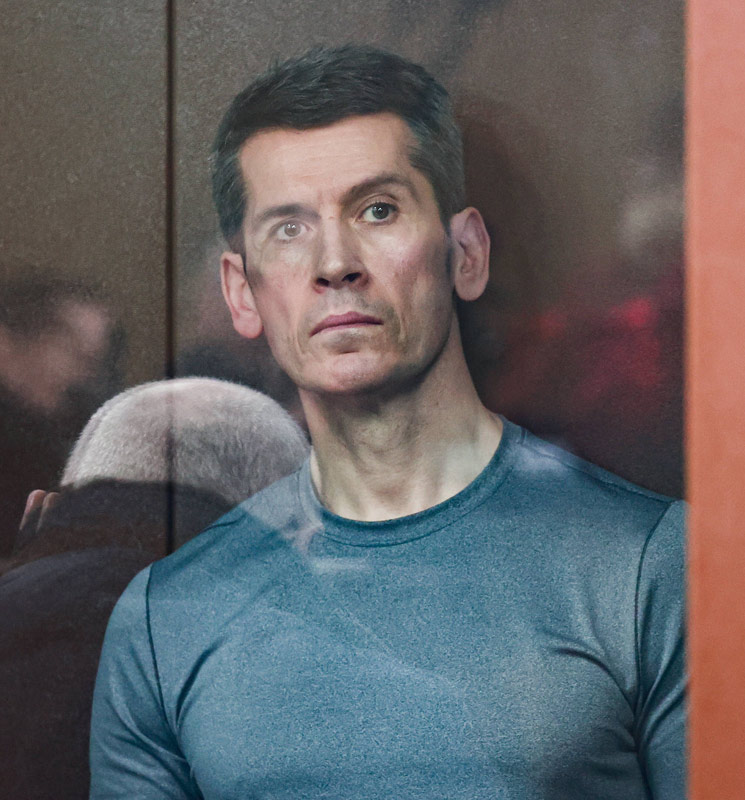Statement: Ruling on permission to appeal
A spokesman for Mr Magomedov said: It is clear from the English process that there are massive losses which Mr Magomedov has suffered as a
Ziyavudin Magomedov was arrested with his brother Magomed in March 2018.
After being held for almost five years without a trial, he was convicted and sentenced to 19 years’ imprisonment in December 2022 by a Moscow judge whose verdict uncritically parroted the prosecution’s case. His brother Magomed, and other co-accused, were also handed lengthy prison sentences.
The charges levelled against Mr Magomedov related to alleged embezzlement of funds arising from public procurement contracts, including some that related to infrastructure required for the 2018 football World Cup, hosted by Russia. The prosecuting authorities claimed the alleged embezzlement caused 11 billion roubles of damage (approximately $120 million at today’s exchange rates).
Mr Magomedov strenuously denies all accusations of wrongdoing.
The prosecution was brought initially by Lt Col Nikolai Budilo, a sanctioned individual notorious for his involvement in proceedings against lawyer Sergei Magnitsky, who died in custody. In 2019, the prosecution was handed over to the FSB, Russia’s security service, further underscoring its political nature. At the FSB’s request, significant parts of Mr Magomedov’s trial were heard in secret.
During the trial, the Criminal Court unswervingly granted whatever applications the prosecution made, providing only occasional justifications and ignoring the fact that, in a case consisting of more than 749 volumes of case files, there was no evidence to support embezzlement charges. On the contrary, the evidence in respect of all the public procurement contracts cited in the case showed that they had been lawfully obtained and duly fulfilled. Russian law concerning the liability directors bear for their companies was also ignored.
In many instances, there was no evidence in the “real world” of what prosecutors alleged were construction defects. For example, expert reports and parallel judgments in respect of the Kaliningrad Stadium project confirmed that the contracted work was carried out properly and in full, and that there were no operating issues. Likewise, the Krestovsky Island project was completed and the work of Mr Magomedov’s company was acknowledged as acceptable by the developer – yet, without explanation, the prosecution insisted that the payment made for this work was “stolen”.

Another charge brought by the prosecution was that Mr Magomedov’s company Stroynovatsiya had wrongly profited from the Kyszyl-Kyragino railway project. Yet the case file consisted of four separate court decisions, including one by the Russian High Court, supported by expert evidence, demonstrating the opposite: that the company performed its obligations under the contract, and was in fact entitled to additional payments.
Following Mr Magomedov’s conviction in December 2022, the Russian prosecutor has applied to confiscate all frozen assets in their entirety. This is despite the hugely disproportionate value of those assets when compared to the alleged criminal damage; and the fact that the prosecutor has presented absolutely no evidence to substantiate an allegation that the frozen assets represent the proceeds of the crimes allegedly committed (or any crime).
Mr Magomedov remains in Lefortovo, the maximum-security prison whose notoriety once again became the focus of global media interest in April 2023, when it was used to incarcerate Evan Gershkovich, the Wall Street Journal reporter accused by Russia’s authorities of spying.
As well as being deprived of his liberty, Mr Magomedov has faced an unbridled assault on his business interests – in both FESCO and his NCSP port business.
In a wide-ranging claim filed at the English High Court, Mr Magomedov and his representatives accuse a number of parties – both western corporations and entities linked to the Russian state – of unlawfully conspiring against him and his business interests.
A spokesman for Mr Magomedov said: It is clear from the English process that there are massive losses which Mr Magomedov has suffered as a
Court papers were filed with the English Court of Appeal in February and March 2025, seeking to appeal the High Court’s 17 January 2025 judgment
A spokesman for Mr Magomedov said: We are naturally disappointed with the decision and intend to seek permission to appeal. The Court was satisfied that
A spokesman for Mr Magomedov said: It is clear from the English process that there are massive losses which Mr Magomedov has suffered as a
Court papers were filed with the English Court of Appeal in February and March 2025, seeking to appeal the High Court’s 17 January 2025 judgment
A spokesman for Mr Magomedov said: It is clear from the English process that there are massive losses which Mr Magomedov has suffered as a

Ziyavudin Magomedov is a successful independent businessman and philanthropist.
If you would like to make an enquiry, please click below to contact a member of our team.
© 2025 Ziyavudin Magomedov
This website has been put together by friends of Mr Magomedov to tell his story.